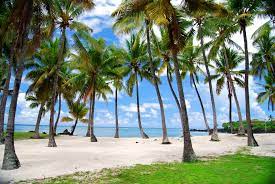The Union of the Comoros is an island nation located off the Eastern coast of Africa. The Comoros’ inhabitants are devoted Muslims, descendants of Arab traders, Persian sultans, African slaves and Portuguese pirates. Scattered across the Indian Ocean, the volcanic islands of the Comoros are truly an off-the-beaten-tracks tropical destination. The nation is remote and far from mass tourism, and travelers have to be adaptive and patient, as everything here goes slowly… The political climate is sometimes unsure and the nature can be hostile, as the islands are regularly stroked by earthquakes and volcanic eruptions… But the visitors are well rewarded with a unique and genuine experience!
HEALTH INFORMATION
We make every effort to ensure that the information posted on our website is up to date and accurate according to the latest public health recommendations; however, it is impossible for us to make changes on a daily basis.
For the most current travel health recommendations, please call our clinic as make an appointment with one of our travel health professionals.
COMOROS – RECOMMENDED VACCINES
| Hepatitis A | Recommended for all travelers. |
| Hepatitis B | Recommended for all travelers. |
| Causes, Symptoms & Treatment – Typhoid fever | Recommended for all travelers. |
| Tetanus – Diphteria – Pertussis Vaccine | Tetanus: In exceptional circumstances (eg, stay in a region where access to health care is limited), for a person aged 18 years or older, 1 dose of DT may be given if 5 years or more has elapsed since the last dose. Otherwise, one booster dose at the age of 50*. Pertussis (Whooping Cough): 1 dose is recommended for pregnant women, for every pregnancy, regardless of immunization history and the interval since the last dose (betwen week 26 and 32). *Only applicable for Quebec. |
| Measles – Rubella – Mumps | Two doses recommended for all travelers born after 1970, if not previously given. |
| Transmission, Symptoms and Prevention – Rabies | For travelers at high risk of animal bites or being involved in activities with bats. Clients who plan to visit remote areas may consider receiving this vaccine. Important to note the pre-exposure rabies vaccine is administered in 2 doses with one week interval between doses. Post-exposure vaccination is always recommended, even for those previously vaccinated. |
| Flu – Influenza | Seasonal influenza occurs worldwide. The flu season usually runs from November to April in the northern hemisphere, between April and October in the southern hemisphere and year round in the tropics. Influenza (flu) is caused by a virus spread from person to person through coughing and sneezing or by touching infected surfaces. Everyone 6 months and older should get a flu vaccine yearly. Vaccine is recommended 14 days prior to departure. |
| Routine vaccines (dCaT, Polio, Meningococcal, Shingles, Pneumococcal, Hepatitis B, HPV, MMR & Varicella) | Recommended for all travelers |
| Cholera | Vaccine recommended for persons traveling to an area of active transmission. Most people do not travel to areas of active cholera transmission. |
| Turista – Traveler’s Diarrhea (ETEC) | Talk to your health care professional about the risks and precautionary measures to take, as well as the Dukoral® vaccine. Important to note that the Dukoral vaccine is an oral vaccine given in 2 doses, recommended at least 2 weeks prior to departure. |
| Malaria | Malaria is present in this country. The risk may be region specific. Prophylaxis measures to be discussed with the health care professional. |
| Dengue Fever, Chikungunya and/or Zika | There are many illnesses that are transmitted via mosquito bites and unfortunately we do not have vaccines to protect us against most of them. It is important to inquire with your healthcare professional regarding the specific risks and the different illnesses presently in circulation. |
RECOMMENDED MEDICATIONS
| Antimalarials Recommended | Malarone, Doxycycline or Mefloquine |
| Antibiotics Traveler’s Diarrhea | Azithromycin or Suprax |
MEDICAL CARE
In the Comoros, the health care system is of very bad quality, reflecting the under developed situation of the country. The medical equipment is rudimentary and medical professionals are not sufficiently trained. Public hospital centers are usually in very poor condition, like the El-Maarouf Hospital, located in Moroni. Some private clinics can be found in major cities. They offer better medical services than public establishments, but they usually have no governmental license.
Emergency services in the Comoros are extremely limited.
Numerous medicines are impossible to find in the country. Drugs purchased in the country can even be dangerous, as there are no strict regulations nor controls regarding medicine importation. Always bring your own medical supplies in sufficient quantities.
SECURITY ABROAD
Although infrequent, petty crime such as pickpocketing, purse snatching and theft from unlocked cars occurs.
CANADIAN EMBASSY
Emergency services
In case of emergency, dial:
- police: 17
- medical assistance: 269 772 03 73
- firefighters: 18

